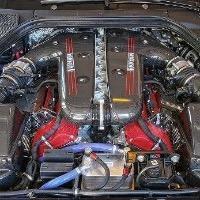-
Contenuti simili
-
La sicurezza dei veicoli commerciali
Pubblicato da MotorPassion,
- adas
- veicoli commerciali
- (e 1 altro in più)
- 8 risposte
- 2210 visite
-
Volvo: investimenti in azienda Israeliana che gestisce i dati dopo un crash
Pubblicato da Beckervdo,
- 1 risposta
- 655 visite
-
- 20 risposte
- 6695 visite
-
-
-






















Messaggi Raccomandati:
Crea un account o accedi per lasciare un commento
Devi essere iscritto per commentare e visualizzare le sezioni protette!
Crea un account
Iscriviti nella nostra community. È facile!
Registra un nuovo accountAccedi
Sei già registrato? Accedi qui.
Accedi Ora